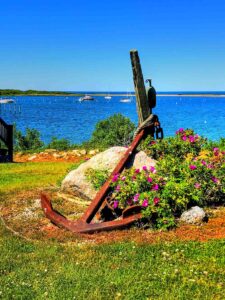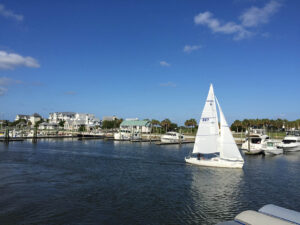As you prepare to explore Cuba, the most important questions you should answer is how will you get there, where will you stay and what do you want to do? The assumption for readers of Marinalife is that you probably want to take your own boat. If so, you will likely chart a course to either Varadero or Marina Hemingway. Both destinations are ports of entry and short crossings from the Florida Keys. Clearing-in protocols are a bit more formal than in many other countries, but if you are adventuresome and flexible, taking your boat is a great option. Dockage rates are reasonable and facilities are fair to excellent, depending on your destination. There are documents that must be submitted to the United States Coast Guard (USCG) and approved, and others to be filled out on your own, but you can easily navigate those requirements with a basic understanding of the regulations.
You may not want to take your own boat due to the Gulf Stream crossing, insurance provisions, weather concerns and regulations for U.S. vessels. If you don’t have patience for that level of detail, or want to charter a vessel, then help is an email or phone call away to several reputable companies that offer expert guidance and support for boating to Cuba. Interestingly, the Cuban government has not changed its attitude toward admitting Americans over the past 20 years. Americans are always welcome, although rates are increasing for everything from visas to dockage rates. With more travelers streaming into the country, Cubans see opportunities unlike any they have experienced in two generations.
WHERE TO STAY AND WHAT TO DO?
Once tied off at the dock, you have choices for where to stay if you want a berth somewhere other than your boat. From the 5-star Hotel Nacional in Havana to privately-owned casa particulars (private
homestay) in every neighborhood in every city, you can find a comfortable and safe home base. Tourism alone is not yet a valid reason to travel to Cuba for Americans so in order to remain within U.S. regulations you should know the rules. There is little doubt that the restrictions on travel for Americans will change in years ahead. If you are the least bit concerned about following the letter of the law, using a company to arrange a legal itinerary and help you meet the requirements is worth considering.
Guidelines for travel to Cuba by U.S. citizens have not been altered for many years, nor has the embargo against Cuba by the U.S. been lifted. The Treasury Department’s Office of Foreign Assets Control (OFAC) publishes and enforces the regulations. Beginning in 2015 there have been ongoing updates and a general relaxation of how you attest to your reason(s) for going to Cuba in addition to the lifting of the ban against private vessels from sailing to Cuba. In spite of these changes, though, the foundational regulations remain in effect.
STAYING LEGAL
Why do you want to go to Cuba if the rules are difficult to follow? At the core of the recent changes in policy is the premise that by participating in people-to-people activities, cultural exchange programs, educational events or research in Cuba we are working towards better relations with the country’s government and its people. If those are your reasons for traveling, then you are likely to be within the boundaries of legal travel as defined by OFAC. There is a wide array of activities that comprise these guidelines. Adhering to the regulations is not as daunting as it sounds, but you must either make those arrangements yourself, or get some help. Two such organizations with a strong track record for working within the OFAC guidelines specific to boating to Cuba are The International SeaKeepers Society and Harmony Yacht Vacations. They prepare your paperwork to ensure that you follow the rules and are engaged in legitimate activities with a valid itinerary and that you document your time and efforts while there.
As boaters, we want the freedom of charting our own courses to destinations, marinas and anchorages. Cruising, tying up in new places and having sundowners is the lifestyle we signed up for when we invested in our boats and the associated costs of keeping them safe and afloat. Cuba is America’s next great opportunity to experience unspoiled beaches, beautiful reefs and a culture that has been off limits to Americans for over 50 years. The excitement surrounding the adventure and beauty of a trip to the Caribbean’s largest island has created a palpable buzz in the boating community. If boating to Cuba is on your list, consider getting help from the experts. From insurance to USCG paperwork and the requisite OFAC forms, they can remove the mystique of bureaucracy and let you focus on the important things; like sunsets on the deck, connecting with new friends and seeing a country on the cusp of transformation.





